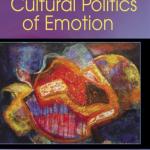I just stumbled across something in my sermon preparation that made me do a double-take because it related to a sermon I preached earlier this fall on the way that sight can be a metaphor for salvation. And God decided to throw another reference to wrath at me that doesn’t fit its modern juridical definition as God’s future punishment of those who break His rules. Here’s the verse: “Whoever believes in the Son has eternal life, but whoever rejects the Son will not see life, but God’s wrath remains on them.”
The Greek word translated as “see” is opsetai. The lectionary says that this word means to “gaze at something remarkable,” unlike blepo, which is just “look,” and eido, which is “mechanical, passive, or casual vision.” So it describes an epiphany, having an encounter with a reality that seizes your attention. To not be able to see life in this way is to look out at a world filled with God’s grace and scoff at the possibility of anything gracious or divine being out there.
The verb used for rejecting the Son is apeitheo, which has a much stronger connotation than a polite “no thank you.” To be peitheo is to be agreeable and conciliatory; to be apeitheo is to have a chip on your shoulder. In Matthew 11:6, Jesus says, “Blessed is the one who takes no offense at me.” Apeitheo is the opposite of that, someone who plays it up when taking offense at people.
The Greek for “God’s wrath remains upon him” is ἡ ὀργὴ τοῦ θεοῦ μένει ἐπ’ αὐτόν. The verb μένει which can also be translated as “abide” is also the word that Jesus uses for the mysterious interdwelling that He will experience with His disciples as the vine of their branches in John 15:5: “The one who abides in me and I in them will bear much fruit” (ὁ μένων ἐν ἐμοὶ κἀγὼ ἐν αὐτῷ οὗτος φέρει καρπὸν πολύν).
The key difference is that the life that Jesus defines as “abiding in me” uses the preposition ἐν while the wrath that “remains upon” uses the preposition ἐπ’. This captures the way that wrath is a state in which we remain outside of God’s presence (epi); life is a state in which Christ comes to be inside of us (en). As long as the wrath “remains upon” (menei epi), Christ cannot “abide within”(menei en). The implication is that the “wrath of God” is equivalent to, manifested in, or caused by the apeitheo with which Christ is rejected. Either one of those three relationships could be possible based on the grammar. None of these three possibilities present us with a wrath that is waiting for us in the future but rather a plaque buildup on our soul (think spiritual gingivitis) that has immediate present consequences such as blindness.
So “wrath” and “life” (at least in this passage) describe two different ontologies, or perspectives on our surroundings, here in this life rather than a coming punishment or reward. Being “covered in God’s wrath” describes blindness to the eternal life Christ offers. The person who doesn’t respond belligerently to the gospel is granted the epiphany of “seeing the life” and being captivated by it. I would imagine that the epiphany moment of “seeing the life” represents the dawn of our faith. It is not that we “decide” to believe but rather that God responds to our openness to faith by showing us the life that is what the world looks like when we believe in Christ.















